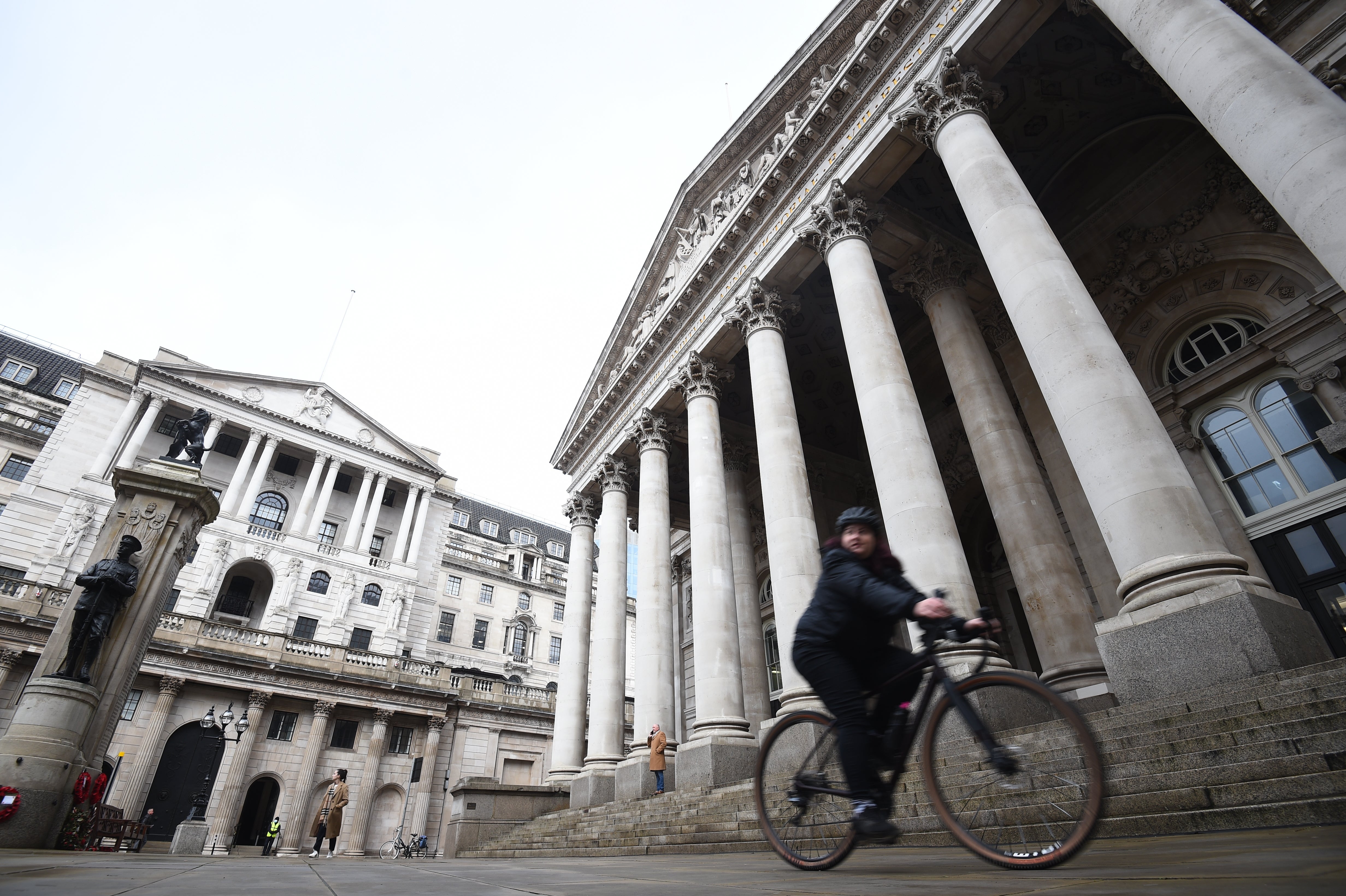Bank decision in sharp focus amid ‘beast of inflation’ warnings
The Bank of England will be watched closely for its latest take on the threat of surging inflation as the economy rebounds sharply.

Your support helps us to tell the story
From reproductive rights to climate change to Big Tech, The Independent is on the ground when the story is developing. Whether it's investigating the financials of Elon Musk's pro-Trump PAC or producing our latest documentary, 'The A Word', which shines a light on the American women fighting for reproductive rights, we know how important it is to parse out the facts from the messaging.
At such a critical moment in US history, we need reporters on the ground. Your donation allows us to keep sending journalists to speak to both sides of the story.
The Independent is trusted by Americans across the entire political spectrum. And unlike many other quality news outlets, we choose not to lock Americans out of our reporting and analysis with paywalls. We believe quality journalism should be available to everyone, paid for by those who can afford it.
Your support makes all the difference.The Bank of England is set to keep interest rates unchanged on Thursday, but its decision comes amid mounting pressure to show it can keep soaring inflation in check.
Policymakers on the Bank’s nine-strong Monetary Policy Committee (MPC) are expected to hold rates at 0.1%, where they have been since being slashed to new historic lows last March at the height of the pandemic.
It is also likely to make no changes to its massive £895 billion quantitative easing (QE) programme.
But all eyes will be on the Bank for its latest take on the threat of surging inflation, with the cost of living ramping up as the economy rebounds sharply.
Inflation has already smashed through the Bank’s 2% target, hitting a higher-than-expected 2.1% in May.
The Resolution Foundation think tank warned last week that inflation could rise above 4% by the end of the year.
It comes as the economic recovery gathers speed thanks to the easing of coronavirus restrictions, with growth rising by 2.3% in April.
The Bank’s outgoing chief economist, Andy Haldane has broken ranks to warn over the “beast of inflation” as he prepares to head out the door at the end of the month.
He was the lone dissenter on the MPC in May to vote for a £50 billion cut to QE to help keep a lid on rising inflation and is expected to repeat the call at his final meeting this week.
It is unclear whether he will be joined by other rate-setters, though Governor Andrew Bailey is unlikely to be one, having been quick to dismiss rising inflation as just a temporary trend.
We do not expect the MPC to change its guidance or to provide an overt signal regarding the timing of rate increases
Despite his assurances, the Bank is coming under increasing pressure, having markedly under-estimated inflation so far in its forecasts.
In May, the Bank said inflation was not set to break through its target until August.
Its US counterpart has also taken a more proactive stance, with the Federal Reserve shocking financial markets by signalling it was likely to raise rates at least a year earlier than previously thought as it too battles rising inflation.
Economists are not expecting any such explicit signs from the Bank, however.
Samuel Tombs, at Pantheon Macroeconomics, said: “Markets will be looking for any hints that the committee now is expecting to raise Bank Rate in 2022, following a shift in several US Federal Open Market Committee members’ expectations last week.
“But we do not expect the MPC to change its guidance or to provide an overt signal regarding the timing of rate increases.”
Many experts predict the Bank will look to trim QE before it raises rates, but join the Bank in believing inflation will cool and return to target early next year.
Key to the outlook will be the impact on jobs and wages when furlough support is pulled in September, according to Investec’s Philip Shaw.
“It looks as though the autumn will be a critical point in the monetary policy conjuncture, with the effects of the winding down of the (furlough scheme) providing a clearer line of sight on pay trends and therefore on whether inflation pressures are transitory or longer-lasting,” he said.